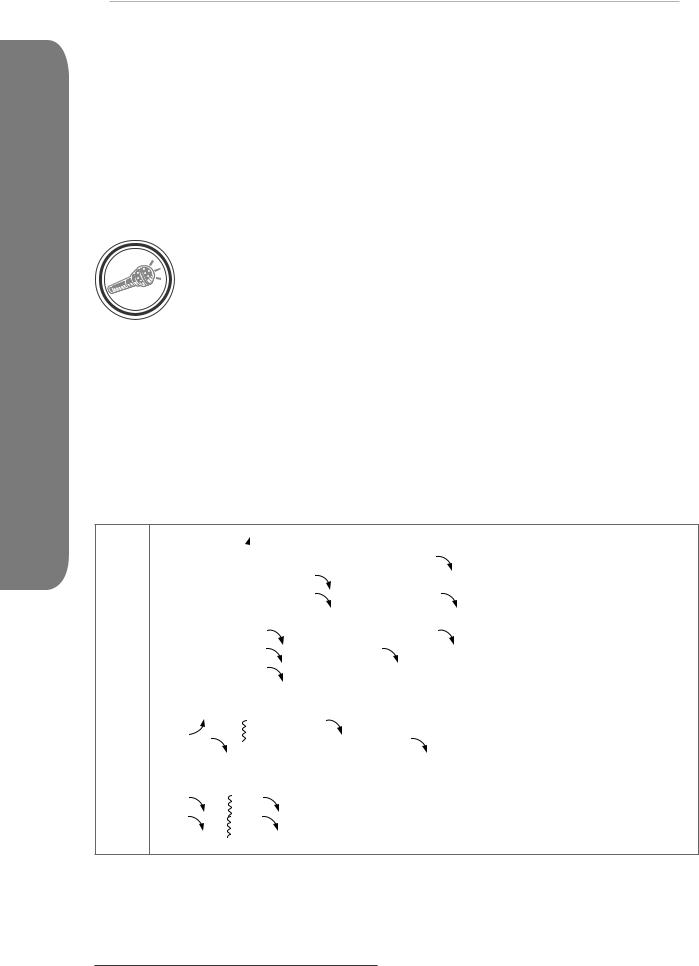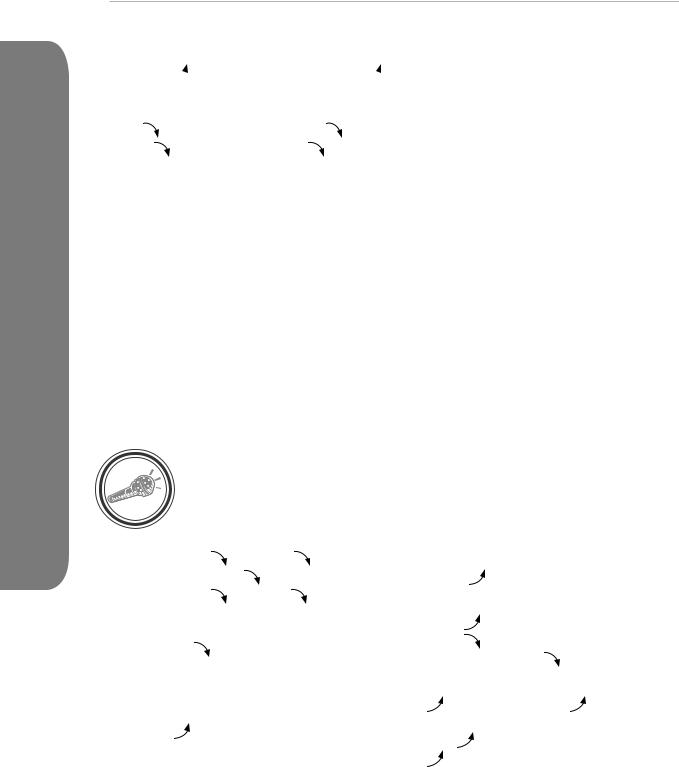
yastrebova_Part_1
.pdf
 Английский язык для международников и регионоведов. Часть I
Английский язык для международников и регионоведов. Часть I
II. GRAMMAR: THE PARTICULARS.
CHOOSE THE APPROPRIATE FORM OR PHRASE.
1.He declined an invitation to dinner, as the pain in his head _______________________
steadily worse throughout the day.
a) got |
b) was getting |
c) had got |
d) had been getting |
2.It is ______________ to buy the winning lottery ticket and lose it than to buy one of the losing tickets.
a) more bad |
b) much worse |
c) more worse |
d) much more worse |
3.Geographically, _____ Northern Ireland is situated on _____ North West periphery of _____ United
Kingdom and the European Union. |
|
|
|
a) 0/0/the |
b) the/the/the |
c) 0/the/0 |
d) 0/the/the |
4.By that time, he ___________________ that he wanted to teach at an arts college.
a) had known |
b) knew |
c) was known |
d) was knowing |
5._____ Lake Michigan is one of _____ five Great Lakes of ______ North America.
a) the/the/the |
b) the/the/0 |
c) 0/the/0 |
d) 0/the/the |
6.Nothing is _________________________ a secret.
a) more exciting as |
b) as exciting as |
c) less exciting as |
d) as exciting than |
7.By the time she was twenty, she ________________________ on Broadway.
a) had been singing |
b) had sung |
c) was singing |
d) sang |
8.It was the first time they _____________________ farm animals.
a) had seen |
b) saw |
c) were seeing |
d) were seen |
9.The Atwoods had to sell the house they ____________________ since 1968.
a) owned |
b) had owned |
c) were owned |
d) had been owning |
10.As the company ________________, manufacturing capabilities ________________ more and more important.
a) was growing/became |
b) grew/became |
c) was growing/was becoming |
d) grew/was becoming
11.There is still _______ good skiing to be found around ________ Alps.
a) a/0 |
b) the/the |
c) some/the |
d) any/0 |
12. No sooner had he got home _________ a royal letter arrived. |
|
||
a) as |
b) when |
c) than |
d) that |
13.Granger’s party occupied a large table at the back. I recognized some of the people Granger
________________________.
|
a) was entertaining |
b) entertained |
c) had entertained |
d) had been entertaining |
||
14. |
The firm makes ______________________ mobile games in the world. |
|
||||
|
a) easily silliest |
b) far sillier |
c) by far the silliest |
d) the most silliest |
||
15. |
Kate T. Williamson, a writer and illustrator _________________ a year in Japan. |
|||||
|
a) had spent |
b) spent |
|
c) was spending |
|
d) had been spending |
16. |
His lips were deep red in colour. He ________________________ blackberries. |
|||||
|
a) was eating |
b) had eaten |
c) ate |
|
d) had been eating |
|
17. |
Their aunt showed up unexpectedly while they _______________________ dinner. |
|||||
|
a) were having |
b) had |
|
c) had been having |
d) had had |
|
18. |
Internet dating is __________________________________ previously thought. |
|||||
|
a) a lot successful than |
b) much successful than |
c) a lot more successful as |
|||
d) a lot more successful than
19._____ person who plays _____ cello is called _____ “cellist”.
a) a/a/a |
b) the/the/a |
c) a/the/a |
d) the/a/the |
20. He was really quite a talented pianist. He was _____________ of a composer, too. |
|||
a) some |
b) something |
c) nothing |
d) anyway |
Chapter 1. The Glorious Past
11

Chapter 1. The Glorious Past
 Английский язык для международников и регионоведов. Часть I
Английский язык для международников и регионоведов. Часть I
III. CHOOSE THE ANSWER APPROPRIATE IN THE FOLLOWING SITUATIONS. MORE THAN ONE ANSWER IS POSSIBLE.
1.A: Mr Brown, let me introduce Mr. McGregor.
|
B: |
|
|
|
|
|
a) Hello! |
b) Hi! |
|
c) How do you do? |
d) How are you? |
2. |
A: Hello, Mr. Jones. How are you? |
|
|
||
|
B: |
|
|
|
|
|
a) I am fine. |
b) Fine, thanks. |
c) I am well, thank you. |
d) I feel bad, I am afraid. |
|
3. |
A: Can you pass me the sugar, please? |
|
|
||
|
B: |
|
|
|
|
|
a) Yes, please. |
b) Of course, I can. |
c) No, thank you. |
d) Here you are. |
|
4. |
A: Would you like some more cake? |
|
|
||
|
B: |
|
|
|
|
|
a) Yes, please. |
b) No, thanks. |
c) No, I am full. |
d) Not at all. |
|
5. |
A: Thank you for helping me with the essay. |
|
|
||
|
B: |
|
|
|
|
|
a) You are very welcome. |
b) Please. |
c) Here you are. |
d) Not at all. |
|
IV. UNDERLINE THE CORRECT QUESTION
1.a) When you last went to London?
b)When did you last go to London?
2.a) What city was founded in 1147?
b)What of the two cities was founded in 1147?
3.a) What did make the Indian chief change his mind?
b)What made the Indian chief change his mind?
4.a) Who is redecorating your house?
b)Who are redecorating your house?
5.a) Do anybody have a mobile?
b)Does anybody have a mobile?
6.Who is it at the door?
7.Who are the people at the door?
8.Why they always think it’s my fault?
9.How much they borrowed?
10.What’s bothering you?
12

 Английский язык для международников и регионоведов. Часть I
Английский язык для международников и регионоведов. Часть I
V.WRITE THE WORD FOR THE PEOPLE LIVING IN THESE COUNTRIES.
1.The USA ______________________
2.Great Britain ___________________
3.China ________________________
4.Scotland _____________________
5.France _______________________
6.The Netherlands _______________
7.Switzerland ___________________
8.Norway ______________________
9.Spain ________________________
10.Denmark _____________________
VI. CHOOSE THE RIGHT SUFFIX TO FORM AN ADJECTIVE. IN SOME CASES MORE THAN ONE ANSWER IS POSSIBLE.
1.danger
a) -able |
b) -ous |
c) -less |
d) -ish |
2.sheep
a) -less |
b) -ful |
c) -ish |
d) -ical |
3.blue
a) -ish |
b) -y |
c) -less |
d) -ary |
4.parent
a) -ical |
b) -less |
c) -al |
d) -ish |
5.economy
a) -ish |
b) -ous |
c) -ical |
d) -ic |
VII. VOCABULARY: THE BASICS.
CHOOSE THE RIGHT WORD TO MAKE THE SENTENCE MEANINGFUL.
1.He was tired and had to make an ___________ to listen to the lecturer. (attempt / effort)
2.A vast plain ___________ up to the Black Sea. (stretched / declined)
3.A long-term aim is to preserve national __________ . (union / unity)
4.It is _______________ to serve green tea in most Chinese restaurants. (habitual / customary)
5.War _____________ people from their families. (separates / divides)
6.They refuse to put any _______________ to the document. (signature / significance)
7.He was a student of _______________ ability. (ordinary / average)
8.They _________________ at home for the next few days. (sat / stayed)
9.An _______________________ with Nokia would help solve the problem.
(agreement / argument)
10.He was the only _________________ they had after the epidemic. (survivor / customer)
11.Napoleon did not expect the army _______________ such a defeat. (to survive / to suffer)
12.How does one _______________ starting one’s own business? (go about / get down to)
13.Our idea was to _______________ the project. (go with / go ahead with)
14.He ___________________ his father and was equally successful with the public. (went after / took after)
15.If inflation is up, prices can’t _______________. (go down / go back)
Chapter 1. The Glorious Past
13

Chapter 1. The Glorious Past
 Английский язык для международников и регионоведов. Часть I
Английский язык для международников и регионоведов. Часть I
VIII. VOCABULARY: THE PARTICULARS.
CHOOSE THE RIGHT ANSWER TO COMPLETE THE SENTENCES.
1.I guessed the answer _____________ the first attempt.
a) from |
b) with |
c) at |
d) on |
2.Business today consists _____________ persuading crowds.
a) in |
b) of |
c) from |
d) out of |
3.Young people have a great desire to feel independent ___________ their families.
a) from |
b) with |
c) of |
d) off |
4.They had to agree _____________ the new demands of their partner.
a) on |
b) to |
c) about |
d) with |
5.The property was divided equally _____________ his wife and his three brothers.
a) among |
b) from |
c) between |
4) for |
6.Banks may suffer _____________ losses as a result of unfavourable exchange rates.
a) for |
b) from |
c) of |
d) 0 |
7.Half the class went _____________ the flu.
a) down |
b) down with c) with |
d) off |
8.Why did you go _____________ your word?
a) away with |
b) down on |
c) to |
d) back on |
9.Weeks went _____________ but there was no news of the expedition.
a) 0 |
b) away |
c) through |
d) by |
10. She _____________ after the job with enthusiasm. |
|
||
a) looked |
b) went |
c) fell |
d) came |
IX. COMPLETE THE SENTENCES AS YOU SEE FIT.
1.Success is never _____________ .
2.United we stand divided we _____________.
3.The road to hell is paved with _____________ .
4.Custom is a second _____________ .
TOTAL: 100

UNIT 1
ACROSS
THE ENGLISHSPEAKING WORLD

Chapter 1. Unit 1. Across the English Speaking World
 Английский язык для международников и регионоведов. Часть I
Английский язык для международников и регионоведов. Часть I
IN UNIT 1 YOU LEARN: |
LANGUAGE FOCUS |
to introduce and greet people; |
past tenses |
to say hello and good-bye |
articles with countable nouns |
to say «пожалуйста» in English |
some, any, no |
to speak about past events |
phrasal verb “go” |
to read faster |
“nationality” words |
to look for information |
|
SPEAKING 1
INTRODUCING AND GREETING PEOPLE
THE BASICS OF SUCCESSFUL COMMUNICATION. A FEW WORDS ON INTONATION
Intonation is more important for communication than the correct pronunciation of individual sounds. The same phrase may have a very different meaning depending on how you say it.
Compare:
1.‘Thank you very  much: the speaker is grateful for what you’ve done or given him/her.
much: the speaker is grateful for what you’ve done or given him/her.
2.‘Thank you  very much: the speaker is truly grateful for what you’ve done or given him/her.
very much: the speaker is truly grateful for what you’ve done or given him/her.
3.In polite refusals we might say: Thank you ‘very  much, but I’d rather not.
much, but I’d rather not.
I.INTRODUCING AND GREETING PEOPLE.
A:Ms1 .  Blake,
Blake,  ‘let me intro’duce Mr.
‘let me intro’duce Mr.  Jones. ||
Jones. ||
|
|
|
|
‘may I intro’duce Mr. |
Jones. || |
|||
FORMAL |
Ms. Blake: ‘How do you |
do? || |
|
|
||||
Mr. Jones: ‘How do you |
do? || ‘Pleased to |
meet you. |
||||||
|
||||||||
|
|
|
|
OR |
|
|
|
|
|
A: ‘Let me intro |
duce myself. || I am ‘John |
Thompson. || |
|||||
|
B: ‘How do you |
do? || I am ‘Kate |
Martin. || |
|
||||
|
A: ‘How do you |
do? |
|
|
|
|||
|
|
|
|
|
|
|||
NEUTRAL |
A: |
Jane, ‘meet ‘Tanya |
Smith. || |
|
|
|||
B: He |
llo, Tanya. || ‘Nice / ’pleased to meet you. |
|||||||
|
|
|
|
|
|
|
||
|
|
|
|
|
|
|
|
|
INFORMAL |
A: |
Hi, |
I am |
Jack. || |
|
|
|
|
B: |
Hi, |
I am |
Sasha. |
|
|
|
||
|
|
|
|
|
|
|
||
HOW ARE YOU?
neutral = inquiry about one’s health
informal = how are things? (как дела?). How are you doing? (как поживаете?)
1 [miz]
16

 Английский язык для международников и регионоведов. Часть I
Английский язык для международников и регионоведов. Часть I
Compare:
1.A: ‘How are  you? ||
you? ||
B:I am  fine,
fine, 
 thank you. || And
thank you. || And  you?
you?
2.A: ‘How are  things?
things?
B:‘Fine,  thanks. || ‘What about
thanks. || ‘What about  you?
you?
A:  Fine. / ’Not
Fine. / ’Not  too bad.
too bad.
PAIRWORK
Make up dialogues suitable for the following situations:
1.Bill Clinton and Hillary Rodham met in Yale law library: they were staring at each other until Hillary broke the silent flirtation and marched over to Bill.
Hillary:
Bill:
2.At a diplomatic reception. The Russian ambassador introduces the new attaché,
Boris Ivanov, to the guests, the British attaché, Mr. Hewitt-Packard and his wife Joanne, among them.
Russian Ambassador: British Attaché:
3.At a birthday party given by your friend. You are introduced to your former classmate. (use: we’ve met…)
4.At a business lunch. Mr. Bean, a businessman interested in exporting snow from Alaska, meets a Russian official from the Ministry for Foreign Economic Relations Mr. Razin. Mr. Bean’s business partner Ms. Shilova is to perform the introductions.
5.On a blind date. Cynthia asked her friend Bunty along on her date with Eric. Eric said he’d bring a friend for Bunty. Bunty has met neither of the boys.
Cynthia: Eric :
Malcom (Eric’s friend): Bunty:
6.At Sheremetyevo airport. Natalia Gromova, an official from the Ministry of Culture, meets a UNESCO delegation (Ms. Seymour, head of the delegation, Ms. O’Connor, Mr. McPherson).
ПОЖАЛУЙСТА: PLEASE, THANK YOU, ETC.
Situation 1. (At the table): You are offered something. Your answer:  Yes,
Yes,  please. Or
please. Or  Thank you.
Thank you.
‘No,  thank you.
thank you.
Chapter 1. Unit 1. Across the English Speaking World
17

Chapter 1. Unit 1. Across the English Speaking World
 Английский язык для международников и регионоведов. Часть I
Английский язык для международников и регионоведов. Часть I
Situation 2. (At the table, etc): You are asked to pass something. Your answer:  Here you
Here you  are. (American:
are. (American:  there you
there you  are).
are).
Situation 3. Somebody says “thank you” for your service, etc. Your answer:
You are |
welcome. |
‘Don’t |
mention it. |
‘That’s all |
right. |
My |
pleasure. |
‘Not at  all.
all.
Practice saying the right thing.
1.Hostess: Would you like some tea/coffee/etc.?
Have some fruit/cake/etc.
2.Can you pass me the bread, please?
3.Thank you for helping me with the essay.
4.It worked just fine. Thanks a lot.
5.Thank you very much (indeed). It helped a lot.
6.Can you pass me the water, please?
7.Can I have the newspaper, please?
8.“Have some wine,” said the March Hare. Alice looked all round the table, but there was nothing on it but tea. “I don’t see any wine,” she remarked. (from “Alice in Wonderland”)
What was the polite answer expected of Alice?
SPEAKING 2
SAYING HELLO AND GOOD-BYE
FORMAL |
Good |
evening / |
Evening. |
|
|
|
|
Good |
morning / |
Morning. |
|
|
|
|
Good ‘after noon. |
|
Good- |
bye. |
||
|
|
|
|
|
|
|
NEUTRAL |
|
|
|
Good |
night. |
|
He |
llo, Jack / everybody. |
Good |
luck. |
|||
|
||||||
|
Have a nice / good day |
|||||
|
|
|
|
|||
|
|
|
|
(evening, week-end, trip, etc.) |
||
INFORMAL |
|
|
|
See you (later). Take care. |
||
|
|
|
|
|||
|
Hi, Jane! |
|
Bye- |
bye. |
||
|
|
|
|
|||
|
|
|
|
Bye. |
|
|
USEFUL PHRASES:
Practise Saying Hello (with the falling tone).
1. A: Good  morning, everybody! B: Good
morning, everybody! B: Good  morning, Ms. Black! OR
morning, Ms. Black! OR  Morning, Ms. Black!
Morning, Ms. Black!
2. A: Good ‘after  noon! B: Good ‘after
noon! B: Good ‘after  noon!
noon!
18

 Английский язык для международников и регионоведов. Часть I
Английский язык для международников и регионоведов. Часть I
3.A: Good  evening,
evening,  ladies and gentlemen!
ladies and gentlemen!
4.A: He  llo,
llo,  Kate!
Kate!
B:He  llo,
llo,  Denis!
Denis!
5.A: He  llo,
llo,  Dick,
Dick,  he
he  llo,
llo,  Mark,
Mark,  he
he  llo,
llo,  everybody!
everybody!
B:He  llo,
llo,  Dolly!
Dolly!
6.A:  Hi, John!
Hi, John!
B: Hi, Chris!
Hi, Chris!
Expand these dialogues adding how are you? and nice to see you phrases (see p. 16–17).
Model:
A:Hello, Tanya!
B:Hello, Peter! How are things?
A:Fine / good, thank you. And how are you?
B:Fine, thanks. I feel better now.
|
|
|
Addressing a fitness class |
|
1. |
A: Good afternoon, Mrs. Blake! |
5. |
Instructor: Good evening, ladies! |
|
B: Good afternoon, Mr. Jones! |
Ladies: |
|||
|
|
|
Instructor: |
|
|
A: Good morning, Miss Marple! |
|
At the pub |
|
2. |
6. |
Customer: Hello, Jerry! |
||
|
B: Good morning, Roger! |
|
Barman: Hello, Mr. B! |
|
|
|
|
||
|
|
|
|
|
|
|
|
Breakfast at the host family |
|
3. |
A: Hello, Hillary! |
7. |
Student: Good morning, Sally. Good morning Jake. |
|
B: Hello, Olga! |
Sally: Morning, Sasha. |
|||
|
|
|
Jake: Hello. |
|
|
A: Good evening, Susan. |
|
At a football match |
|
|
Good evening, Paul. |
|
||
4. |
8. |
A: Hi, Willy! |
||
B: Good evening, George! |
||||
|
C: |
|
B: Hi, Mike. |
|
|
|
|
||
|
|
|
|
Practise saying good-bye (with the rising tone).
e.g.
Good-  bye
bye  and good
and good  luck.
luck.  Bye (now). ‘Take
Bye (now). ‘Take  care.
care.
A:Good-  bye.
bye.  ‘Have a ‘nice
‘Have a ‘nice  day.
day.
B:Good-  bye.
bye.  You,
You,  too.
too.
A: Bye for
Bye for  now. || I must be
now. || I must be  off.
off.
B: See you. || ‘Take
See you. || ‘Take  care.
care.
A:Good  bye, then.
bye, then.
B: Bye.
Bye.
Chapter 1. Unit 1. Across the English Speaking World
19

Chapter 1. Unit 1. Across the English Speaking World
 Английский язык для международников и регионоведов. Часть I
Английский язык для международников и регионоведов. Часть I
A:Good  night.
night.
B: Night.
Night.
A: Night then. || ‘See you to
Night then. || ‘See you to  morrow.
morrow.
B: Night. || ‘Take
Night. || ‘Take  care!
care!
Say good-bye in an appropriate way (fi ll in the gaps). If in doubt, consult Appendix.
At the airport
Host mother: Good-bye. _______.
Student: _______.
Leaving the party
Guest: Good bye. Thank you _______.
Hostess: _______.
After classes. Arranging to meet in the evening
A:Bye for now. Are you coming to the disco tonight?
B:I think so. Are you?
A:I guess I am.
B:_______.
A: _______.
At the end of a business meeting
A:Thank you for the lunch. It was delicious.
B:I am glad you enjoyed it. Hope to hear from you soon. _______.
A:_______.
A chance meeting with a former classmate at the railway station
A:It was nice to see you again. I guess it’s time I got on the train. Good-bye.
B:_______.
After dinner at the host family
A:Thank you. The dinner was delicious. I think I’ll go to bed early _______.
B:_______.
READING 1. MEET UNION JACK AND UNCLE SAM
PRE-READING QUESTION:
Who do you think Union Jack and Uncle Sam are?
Read the text to fi nd the main information. Student A reads the text “Union Jack”, student B — “Uncle Sam” (See Appendix). Tell your partner what your text is about.
Text 1. Union Jack
The British flag is called the “Union Jack”, an expression that needs to be explained. The term “Union Jack” possibly dates from Queen Anne’s time (reigned 1702–
1714), but its origin is uncertain. It may come from the “jack-et” of the English or Scottish soldiers. Another explanation links it to the name of James I in either its
20
